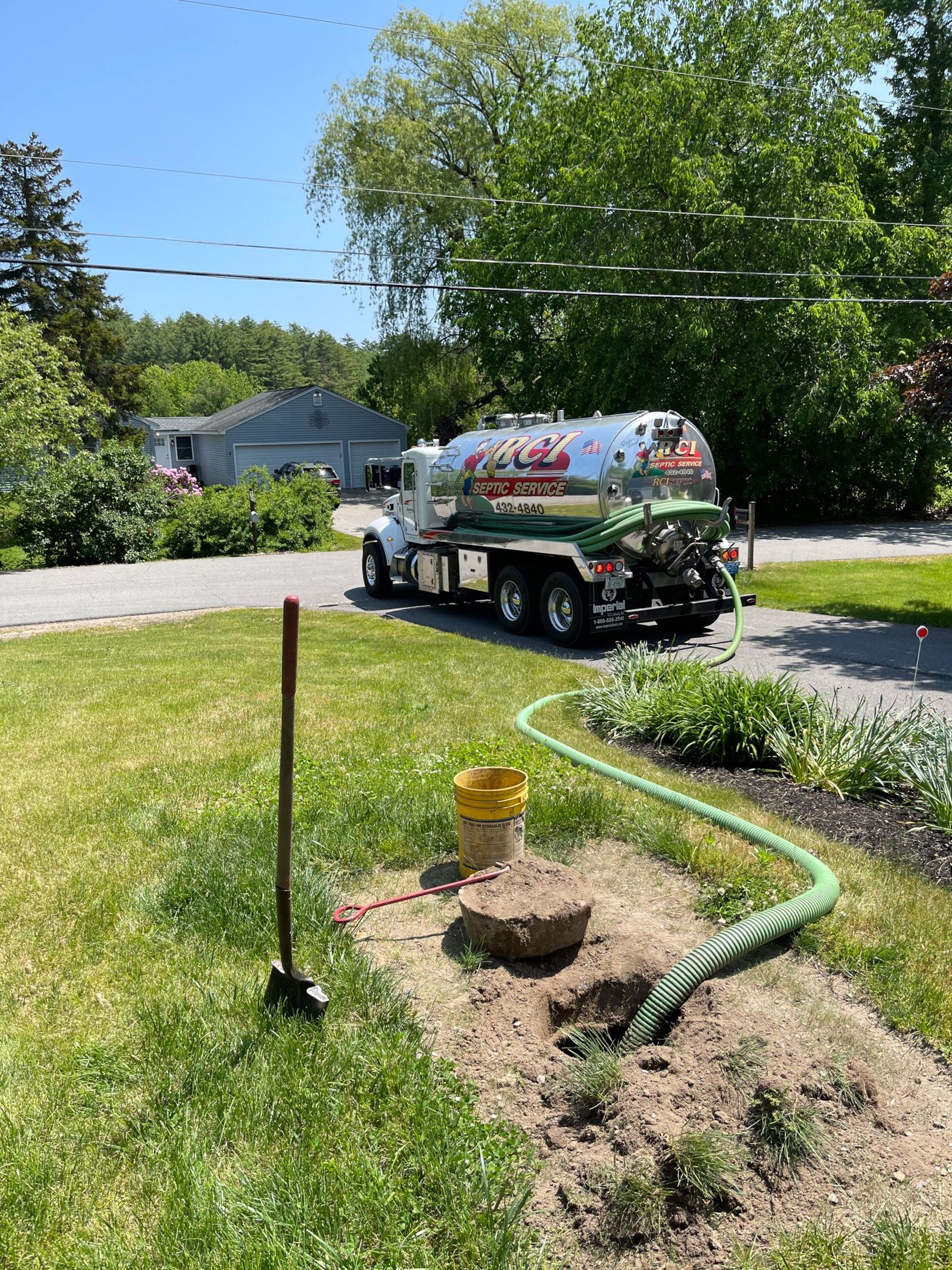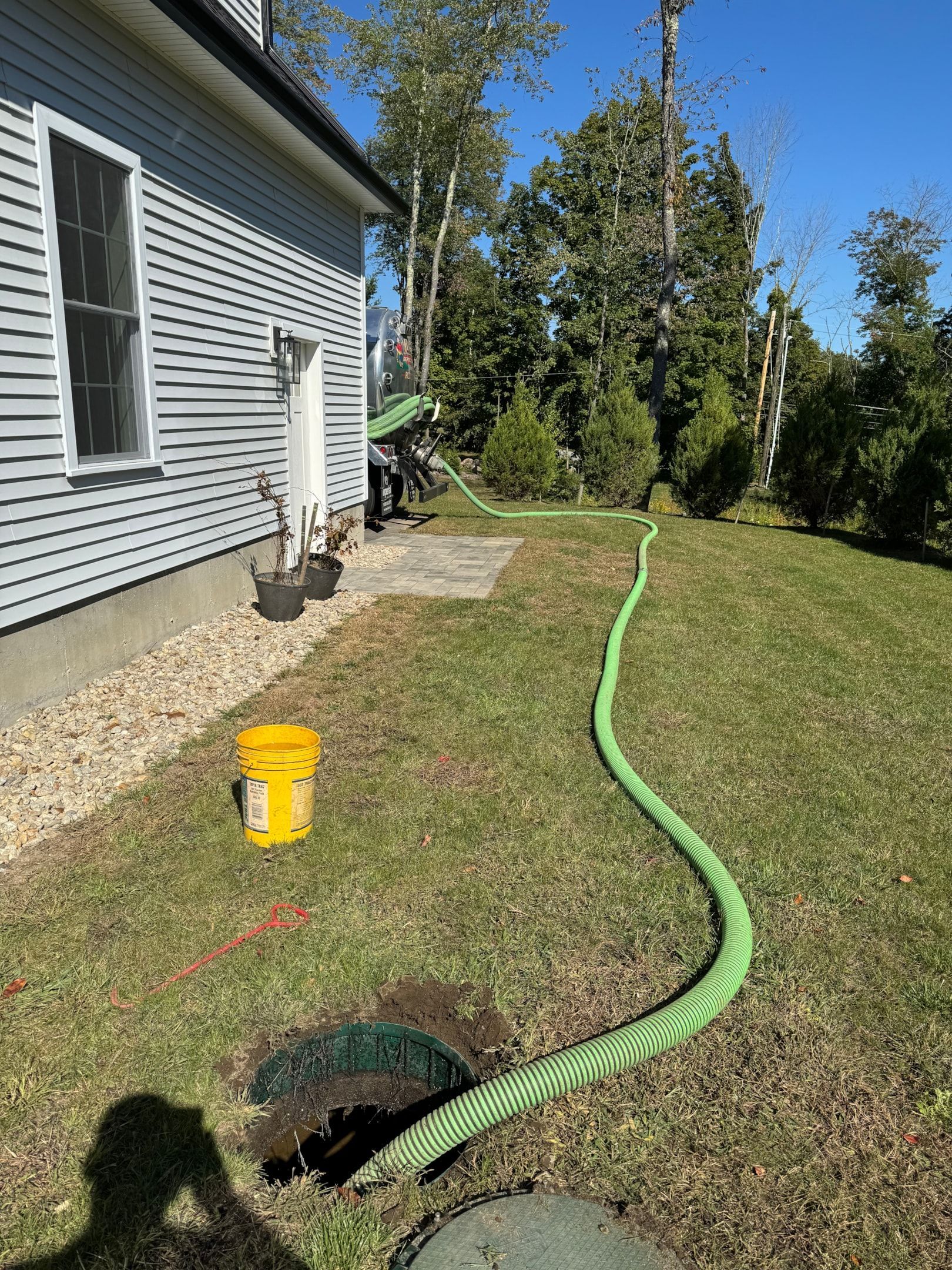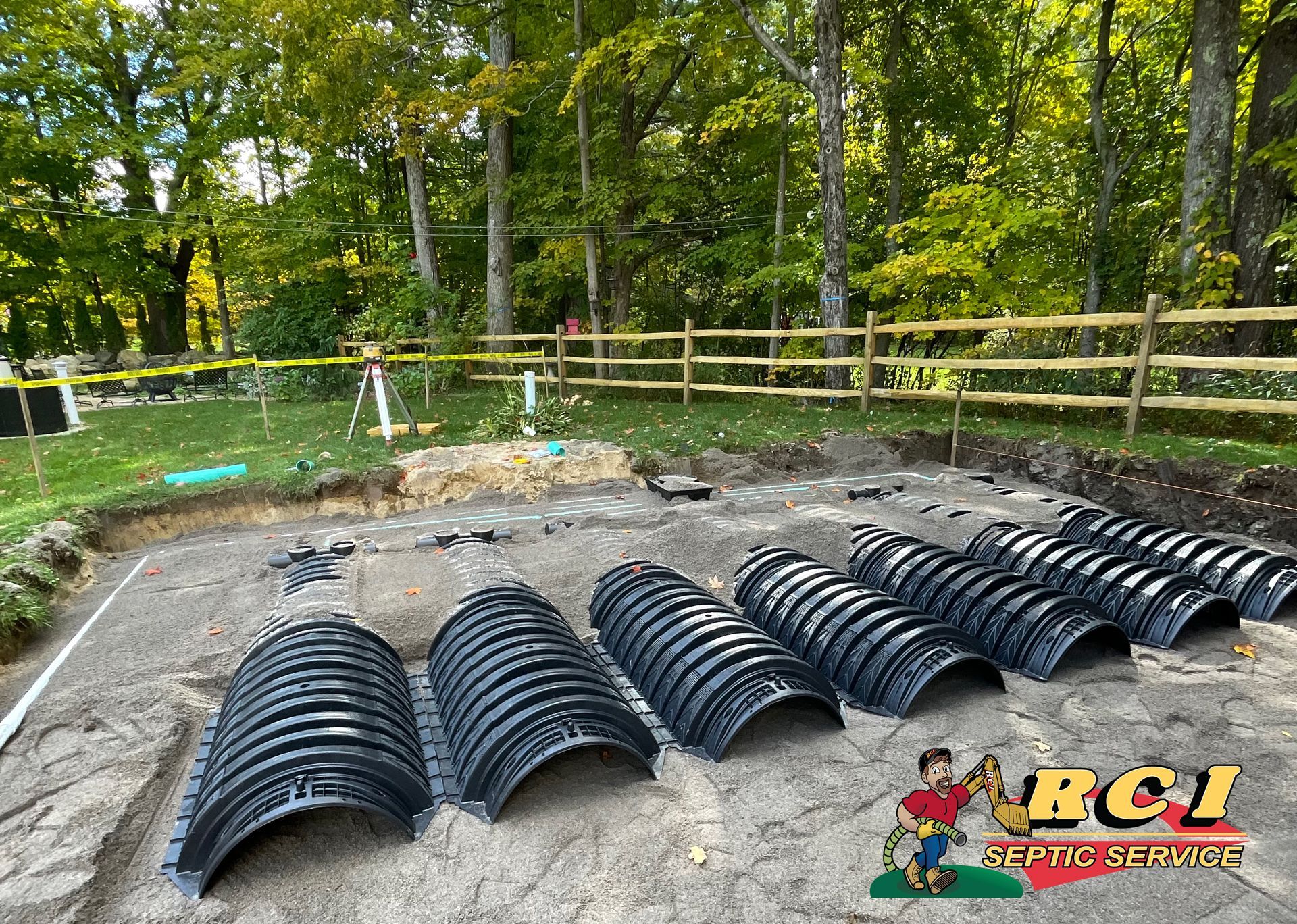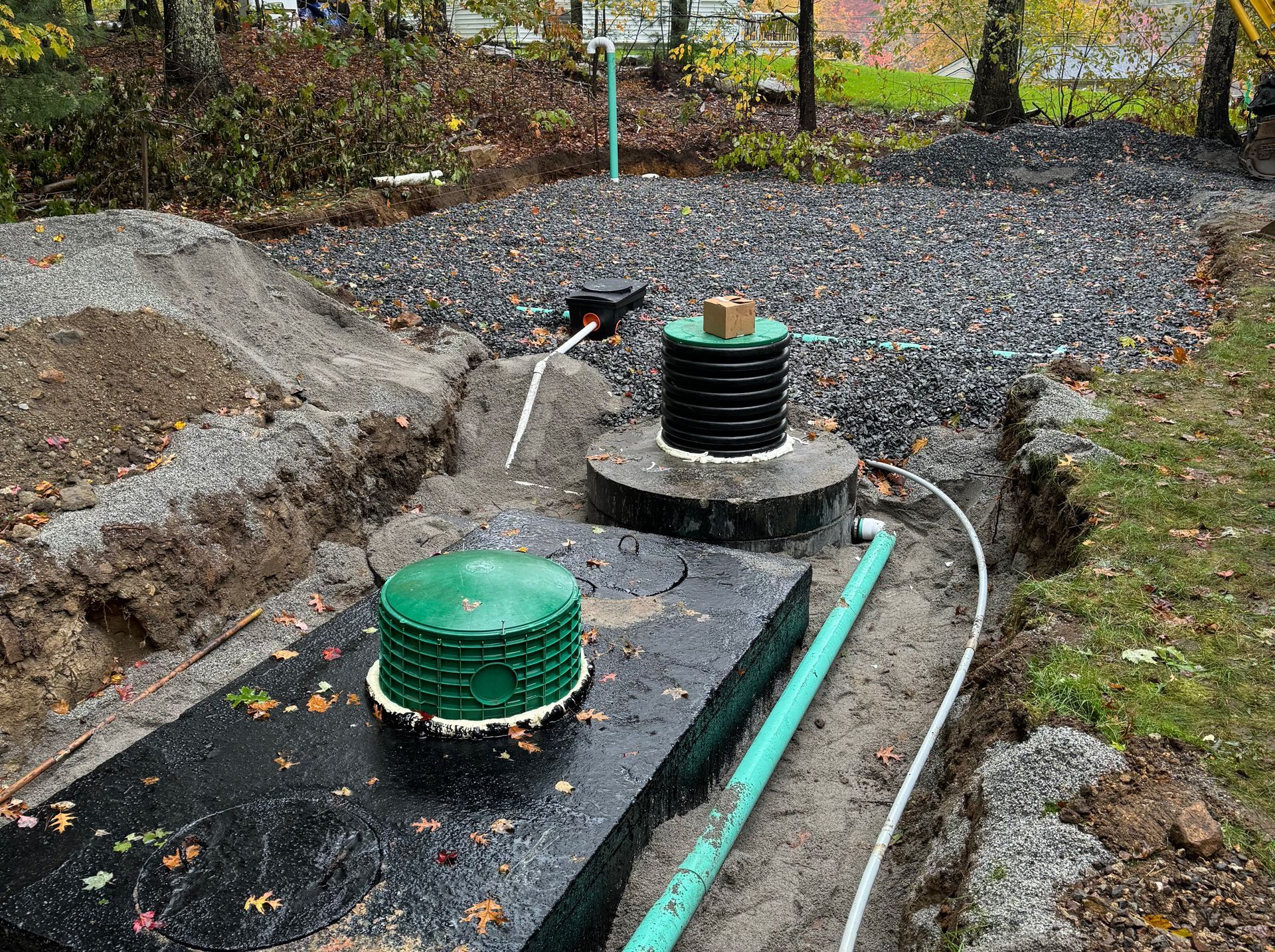Optimal Schedule: How Often to Pump Septic Tank Family of 4
For a family of four, knowing when to pump a septic tank is essential; typically, it should be done every 2 to 3 years. Factors like water usage and tank size can affect this schedule. Read on to learn what influences pumping frequency and how to maintain your system.
Key Takeaways
- A family of four should pump their septic tank every 2 years, adjusted for water usage and tank size.
- Factors like household size, wastewater volume, tank capacity, and water-saving devices significantly impact pumping frequency.
- Awareness of signs indicating a full tank—such as slow drains, foul odors, and standing water—can help prevent severe septic system issues.

Determining the Right Pumping Frequency for a Family of 4
Several key factors influence the right pumping frequency for your septic tank. For a family of four, household size and wastewater production are significant determinants. Typically, a household of this size should pump the septic tank every 2 years to maintain optimal system health.
A general guideline is to pump your septic tank for every 1,000 gallons of capacity. However, this can vary based on household dynamics. For example, a family of five with a 1,000-gallon tank needs it pumped every two years, while a 2,500-gallon tank might need pumping every 5.9 years. Therefore, a family of four with a 1,000-gallon tank likely falls into the 2-year pumping interval.
Water usage habits are also significant. A family using more water due to frequent laundry or long showers will fill the tank faster, requiring more frequent pumping. Conversely, conserving water can extend the interval between pumpings. Monitoring your water usage and adjusting accordingly is important.
RCI Septic Service recommends scheduling a pump out every 1-3 years, depending on household size and usage patterns. For a family of four, a biennial schedule balances maintaining system health and avoiding unnecessary expenses. Regular maintenance prevents costly repairs and ensures compliance with local regulations, safeguarding your property and the environment.
Understanding your household’s size, water usage habits, and septic tank capacity will help determine the ideal pumping frequency. Following these guidelines ensures your septic system remains efficient and trouble-free.
Factors Influencing Septic Tank Pumping Frequency
Several factors influence how often you should pump your septic tank. Household size, wastewater volume, and tank capacity are key factors. Larger households generate more wastewater, filling the tank faster and requiring more frequent pumping.
Water-saving devices greatly impact the volume of water entering the septic system. Installing low-flow faucets, showerheads, and toilets can extend the time between pumpings by reducing overall water usage. This conserves water and helps maintain a healthy septic system over time.
The use of garbage disposal is another critical factor. While convenient, they increase the amount of solids in the septic tank, necessitating more frequent pumping. Being mindful of what goes down the disposal avoids overloading the system with solid waste, food waste, and other non-biodegradable materials.
The most effective way to determine when to pump your septic tank is by monitoring sludge and scum levels. Regular inspections help assess these levels, ensuring the tank is pumped based on actual need rather than a fixed schedule. This proactive approach prevents issues such as clogged pipes and drain field contamination.
In summary, factors such as household size and water-saving habits determine how often your septic tank needs pumping. By understanding and managing these variables, you maintain an efficient and healthy septic system.

Signs Your Septic Tank Needs Pumping
Recognizing the signs that your septic tank needs pumping prevents severe issues. One of the most apparent indicators is slow drains. If your sinks, showers, or toilets drain slower than usual, it could mean your septic tank is full and needs attention.
Foul odors emanating from your plumbing or around the drain field are another clear sign. These sewage smells indicate the tank is full and household drain waste is not being properly processed. Ignoring these odors can lead to significant problems, including hazardous wastewater backups.
Standing water around the septic tank or drain field is another red flag. This often occurs when sludge and scum levels have risen excessively, preventing proper drainage. If you notice standing water, pump your septic tank immediately to avoid further damage.
Awareness of these signs—slow drains, foul odors, and standing water—can help you address septic tank issues before they escalate. Regular monitoring and timely pumping keep your septic system functioning smoothly.
The Role of Tank Size in Pumping Frequency
Septic tank size significantly impacts how often it needs to be pumped. Larger tanks accommodate more waste, allowing for longer intervals between septic tank pumped compared to smaller tanks. Households with larger tanks can enjoy more extended periods of hassle-free operation.
Smaller tanks, on the other hand, have limited capacity and fill up quickly, necessitating more frequent pumping to prevent overflows and backups. If your household has a smaller tank, adhering to a stricter maintenance schedule ensures the system remains functional.
When determining the service interval for your septic tank, consider not only the tank size but also household size and water usage habits. A larger tank might seem advantageous, but significant water use may still require regular pumping.
In summary, tank size is crucial in determining septic tank maintenance schedules. Larger tanks require less frequent pumping, while smaller tanks need more frequent attention. Understanding this helps plan and manage your septic system more effectively.
Importance of Regular Septic Tank Maintenance
Regular septic tank maintenance prevents system failures and extends the lifespan of your septic system. By regularly inspecting and pumping your tank, you minimize repair costs and avoid severe issues like sewage backups, including the problems caused by a full septic tank. Additionally, septic system maintenance is crucial for long-term efficiency.
Maintaining your septic system also has environmental benefits. Proper maintenance prevents harmful substances from contaminating groundwater, protecting the surrounding ecosystem. Additionally, adhering to local regulations helps avoid fines and ensures compliance.
Regular inspections and pump outs keep your septic system healthy. Services like RCI Septic Service emphasize regular maintenance to ensure proper functioning and extend the system’s lifespan. Professionals provide valuable advice on waste disposal practices and water conservation, which influence the frequency of pump outs.
Consistent septic tank maintenance prevents costly repairs, protects the environment, and ensures system longevity. Hiring professionals for regular inspections and pump outs saves you time and money while keeping your septic system in top shape.

Professional Septic Tank Pumping Services
Hiring a certified septic tank pumping company ensures proper maintenance and effective service. Professionals bring expertise and specialized equipment, ensuring the job is done correctly and efficiently. This reduces the risk of costly repairs and extends the lifespan of your septic system.
RCI Septic Service offers a range of services, including septic clean out and pumping, to ensure thorough care for your system. Skilled technicians use state-of-the-art equipment to efficiently pump out septic tanks, preventing backups and ensuring smooth operation. Customers can expect prompt, courteous service with transparent pricing and no hidden fees.
Professionals provide valuable insights and advice on maintaining a healthy septic system. They can identify potential issues early and recommend preventive measures to avoid future problems. This proactive approach helps keep your septic system in optimal condition, saving you time and money in the long run.
Hiring professional septic tank pumping and septic pumping services is crucial for maintaining a healthy and efficient system. The expertise and equipment provided by professionals ensure the job is done right, preventing costly repairs and prolonging the life of your septic system.
Summary
Maintaining a septic system is essential for the health and functionality of your home. By understanding the factors that influence pumping frequency, recognizing the signs of a full tank, and adhering to regular maintenance schedules, you can prevent costly repairs and ensure a healthy septic system.
In conclusion, regular septic tank maintenance and professional services are key to keeping your system running smoothly. Don’t wait for problems to arise—schedule regular pump outs and inspections to keep your septic system in top shape.
Frequently Asked Questions
How often should a septic tank be pumped out for different household sizes?
A septic tank should be pumped annually for households of 5 or more, every 2 years for 3-4 people, and every 3 years for 1-2 people. Regular maintenance is crucial to ensure its proper functioning.
What services does RCI Septic Service provide?
RCI Septic Service offers septic clean out, septic pumping, and septic tank pumping services to ensure your system runs efficiently.
What equipment do RCI Septic Service technicians use?
RCI Septic Service technicians utilize state-of-the-art equipment for efficient septic tank pumping. This ensures high-quality service and effective management of septic systems.
What can customers expect from RCI Septic Service in terms of service?
Customers can expect prompt and courteous service from RCI Septic Service, along with a commitment to leaving no trace and transparent pricing with no hidden fees.
What is the priority of RCI Septic Service?
The top priority of RCI Septic Service is to maintain the health of septic systems. This focus ensures effective and efficient waste management for their clients.


